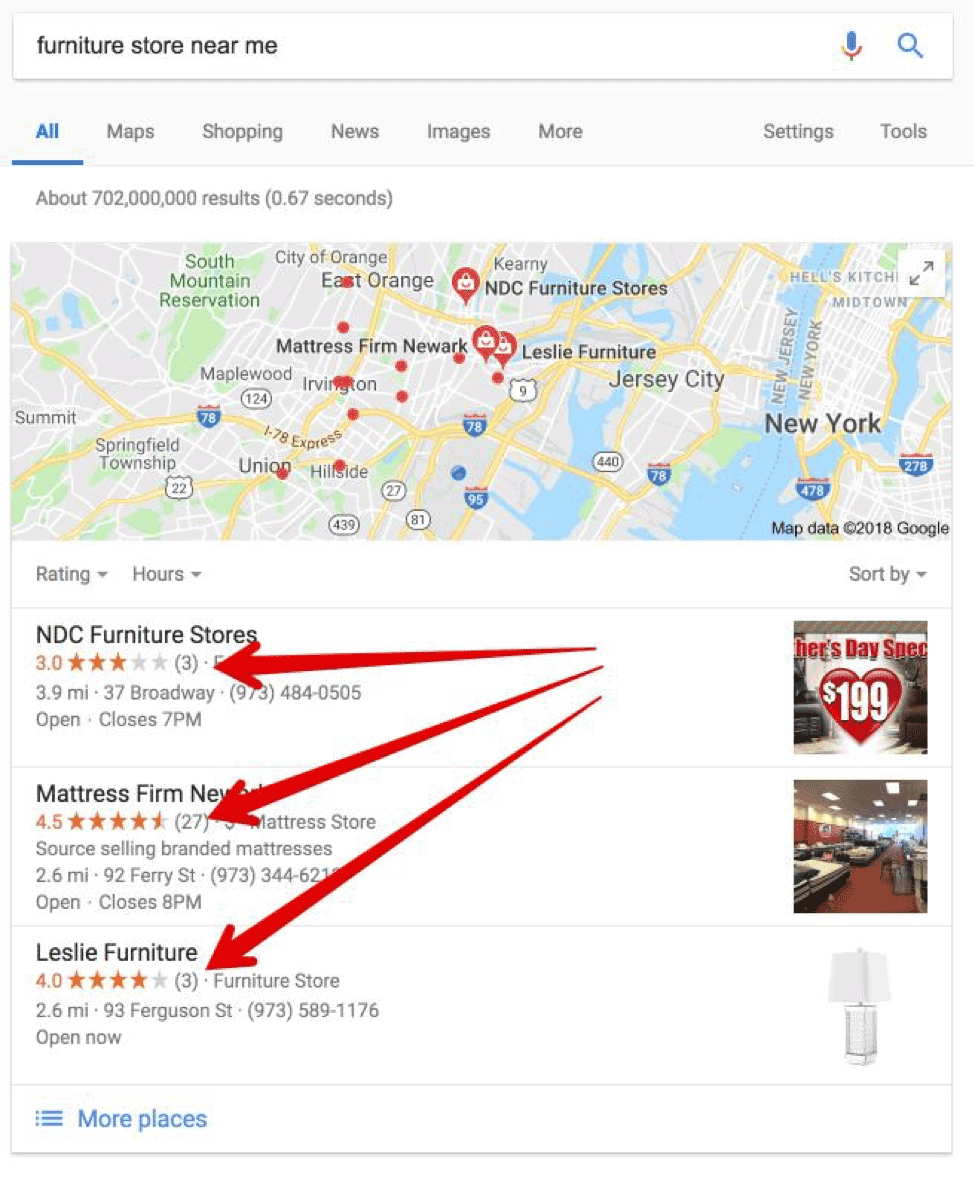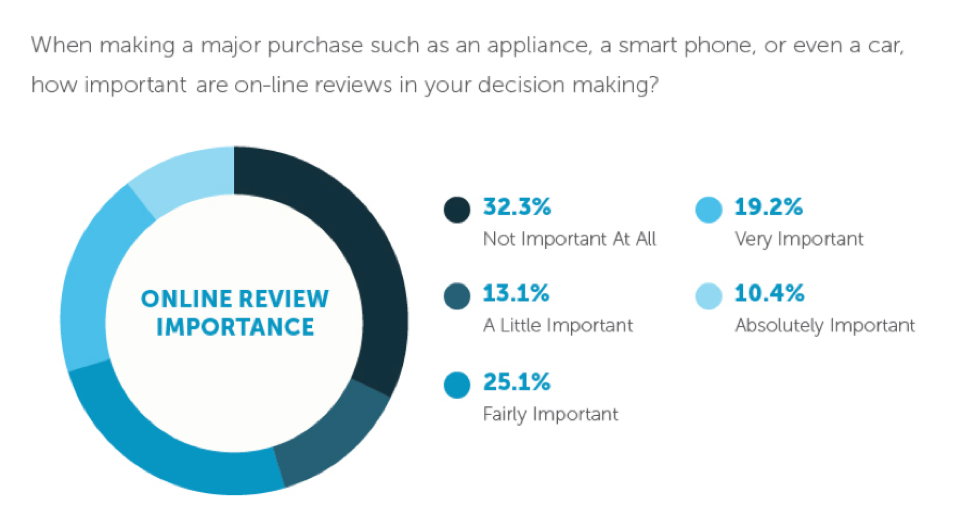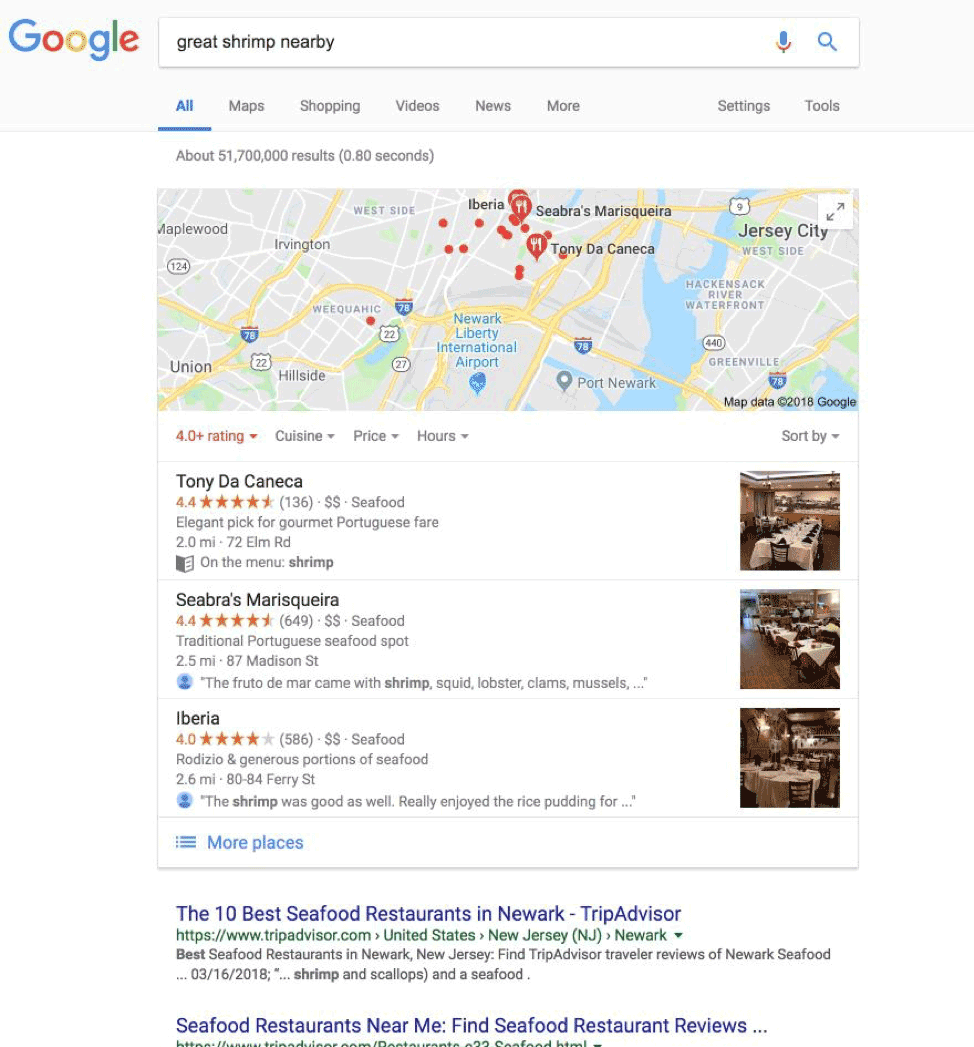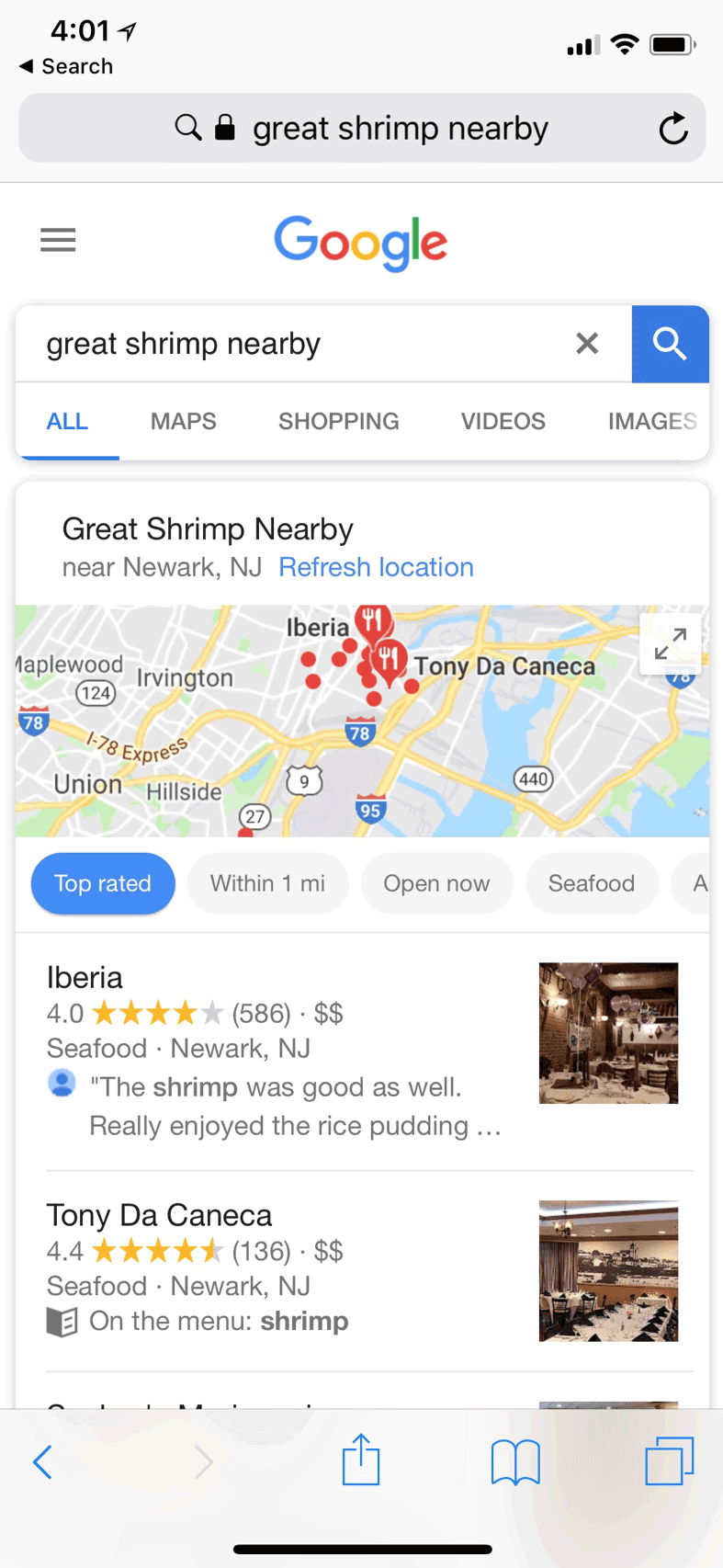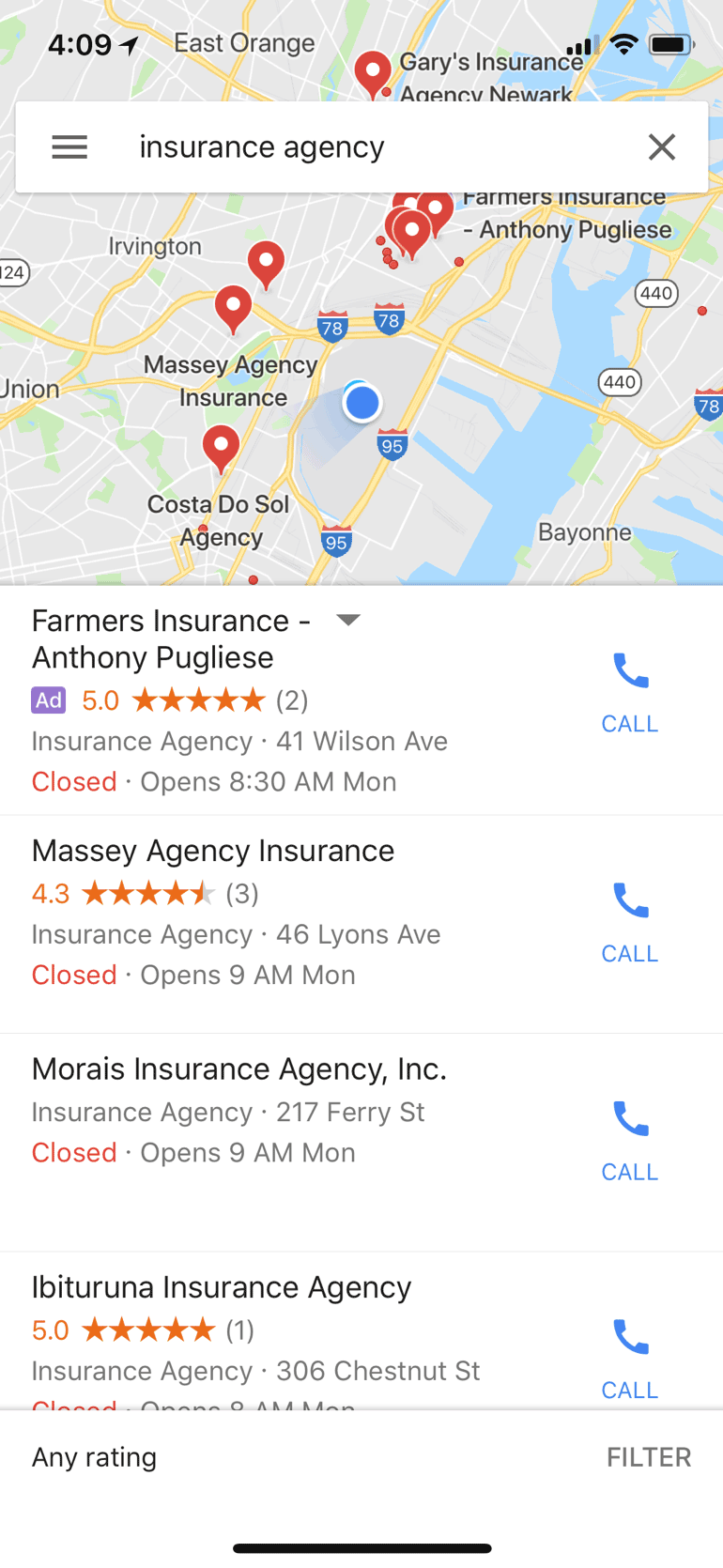Local Business Reputation Management Overview
Reputation matters, whether you’re an ordinary individual, an extraordinary individual, a crook, a saint, a political figure, or an entertainer. But reputation matters for more than just individuals. In the world of business, reputation has an ever broader impact than ever.
Local business reputation is one of the hottest and most active areas of reputation management. It not an overstatement to say that a business’s success or failure depends on its reputation.
But how does a local business…
- Create a reputation?
- Ruin a reputation?
- Keep a reputation?
- Change their reputation?
This is where it gets interesting for local businesses. Reputation is notoriously difficult to change. Why? Because reputation is more than an amalgam of actions and deeds. Reputation is about how people perceive something. Reputation is the province of the mind. And it’s very difficult to change people’s minds.
Technology, however, has partially removed reputation from the realm of perception and into the world of algorithm. Because of this shift, managing a small business reputation has become more of a science than an art.
This article explains how local business reputation management works and how to effectively manage it for the improvement of your local business.
Localized SEO is important
Reviews are important, we will discuss those shortly, but solid SEO is also important. For example, if you’re a chiropractor (or anything else) you will want a site highly optimized for terms like “best chiropractor”. But add to that a geographic term and you’ll get more love from Google. For example, if your chiropractic office is in “Ventura” (a town in California) you’ll want to optimize for a long-tail term like “best chiropractor in Ventura“. That means following basic SEO strategy to get your site optimized for terms that matter. After that is done, you can move on to reviews.
Local business reputation management is all about the online reviews.
A small business’s reputation exists in the form of online reviews. That sounds simplistic, but it’s true.
According to research, 97% of consumers look online for local businesses. When they do so, they inevitably see reviews. These reviews are responsible for forming that consumer’s reputation of the company.
Take, for example, a simple query for “local furniture stores.” When I search, I see Google’s local pack which contains star ratings. These star ratings are an average of the star reviews left by previous customers.
Not only are these reviews highly visible, but they are also trusted. Trust and reputation go hand in hand. Most consumers trust online reviews just as much as they do a recommendation from a friend (source).
As many as 67% of customers consider these reviews to be important, thus influencing their purchase decisions.
The better reviews, the better the business’s reputation. The research statistics may vary, but by all signs, businesses with great reviews do better than businesses with poor reviews.
Google has made it easy for consumers. All they have to do is type in a business name, and they get instant visibility as to that business’s reputation in the form of star reviews.
What customers see on the search engine results page forms the business’s reputation.
The way local business reputation works is pretty simple. A customer types in a query. What they see in the resulting search engine results page (SERP) shapes the reputation of that company.
But how important? According to research from Moz, if a customer sees a negative review of a business in the search engine results page, that business can lose 21.9% of its customers! The number of lost customers drops significantly with each additional negative review:
- A business loses 21.9% of its customers with one negative article on the first page of the search results
- A business loses 44% of its customers with two negative articles on the first page of the search results
- A business loses 59% of its customers with three negative articles on the first page of the search results
- A business loses 69% of its customers with four negative articles on the first page of the search results
- A business loses 99.9% of its customers with four negative articles on the first page of the search results
Local business reputation is built on online reviews. When a customer googles a local business name, anything and everything they see in the SERPs goes into forming that business’s reputation.
Keep in mind that every type of local business can and does get reviewed — restaurants, plumbers, banks, insurance agencies, realtors, physicians. If you are a local business, you’ll get reviewed, and you will prosper or flounder as a result of what those reviews say.
Your online reviews are your reputation.
Which review sites matter?
The next logical question asked by most businesses, is okay, what review sites are the most important?
There are several layers of answers which I’ll go into detail below. The easiest and most straightforward answer, however, is Google.
Google My Business is the preeminent review site and is the most important one for formulating your local business reputation.
The most visible review site is the most important one for forming a local business reputation.
Reputation is all about search engine visibility. In other words, when a customer conducts a search or query, what they see first is the most influential piece of information in their formulation of a reputation.
In psychology, this phenomenon is known as anchoring. Anchoring is the tendency of the mind to rely on the first piece of information presented to it. This bias is often exploited in a sales situation to subtly influence customers to spend more on a product or service. It is, however, just as meaningful in a reputation scenario.
What a customer sees first is what they think. And what they see first is usually Google’s review. Take, for example, the query “great shrimp nearby.” If a customer is in the mood for shrimp, here’s what they see:
I took the screen capture from a regular-size Macbook screen in my Chrome browser. Notice how 90% of the visible space (“above the fold”) displays Google reviews.
The same holds true for mobile queries, except that all the visible screen space is Google reviews.
There’s another reason why Google is so vastly important: maps. Google Maps is the map app of choice for 70% of iPhone users, even though Apple Maps is the device’s native map. Many consumers rely on Google Maps not just a Google search to find out about a business.
When a consumer does so, once again, they see star ratings that influence what they think of the local business.
This is why Google is the most influential review site. The cognitive bias of anchoring, plus Google’s visual domination of the SERPs means that your business’s reputation depends on the reviews that consumers see in a Google query.
The most trusted review sites are also significant for forming a local business reputation.
The most visible review site is clearly the most influential, but there is also a trust factor to keep in mind.
According to extensive research of BrightLocal, the most trusted online review sites are these four, in order of highest trusted:
- Yelp
- Better Business Bureau
However, it’s no secret that the world of online reviews is overrun with fake reviews.
A Harvard Business School working paper revealed a litany of financial motivations for local businesses to publish fake Yelp reviews. Their assertion is that “the credibility of these reviews is fundamentally undermined.” The problem was serious enough for New York’s Attorney General to conduct a year of undercover investigation into the problem of fake reviews.
Most savvy consumers have a lurking suspicion that many online reviews are fake. According to BrightLocal, “79% of consumers have read a fake review in the last year, but a worrying 84% can’t always spot them.”
In spite of the proliferation of fake reviews, we still trust them. We don’t have much else to go on, so we are dependent upon review sites, fake reviews and all.
The most relevant review sites are influential in creating a local business reputation.
The final category of review sites that matter are those that cater to a specific industry or serve a particular purpose. The issue here is relevance. The more relevant a review site to a specific type of business, the more likely it is to be a trustworthy source.
Some review sites are specific to restaurants, such as Zomato and Zagat. Other review sites like Glassdoor, provide information that is relevant to a prospective employee. TripAdvisor is the most relevant review site for tourist locations.
It’s important to determine what review site is most important for your particular local business and invest your reputation management efforts there.
How can you improve your local business reviews?
Once you realize that your online reviews are your reputation and that specific online review sites are more important than others, the real work of reputation management has begun. Creating a great business reputation requires getting great reviews.
Getting reviews for your local business is a multi-million dollar business. It’s saturated with online how-to content, hawked by marketing companies, pawned by shysters, pursued by local business owners, and discussed by politicians and business moguls alike.
It’s easy to get overwhelmed by the purported complexity of the task. Really, however, the process is quite simple.
To solicit awesome reviews, follow this framework:
- Create a stellar experience. Obviously, the most important activity that a local business can do is refine and improve their own craft. The better job a business does, the better reviews it is likely to get.
- Ask for reviews. 66% of consumers leave a review if you ask them to (source). And if you are bold enough to ask, you are likely serving them in a manner worthy of a positive review.
- Respond to reviews. 30% of customers consider a business’s responsiveness to reviews to be a key factor in their judgment of the business (source).
- Make your business easy to find online. Increasing your business’s overall visibility is one of the simplest ways to get more reviews. If customers can’t find you, they won’t review you. Improved local SEO and robust pages on Google, Yelp, and Facebook will give you a powerful edge in building a library of positive reviews.
How can you improve a damaged local business reputation?
Often, clients come to us when the damage has been done — when their local business has hundreds of negative reviews and little hope of recovery.
Rebuilding your reputation requires improving your reviews. There are two important features to keep in mind about rebuilding a tarnished reputation.
- Improving a damaged local business reputation takes a long time. Reversing the trend of many negative reviews is measured in months, not weeks. Rolling out a review improvement program should be done sequentially in order for the algorithms to recognize the new positive influx of reviews as legitimate and trustworthy.
- Don’t be tempted to buy fake reviews. If you attempt to reverse the trend of negative reviews by purchasing fake and positive reviews, the attempt will most likely backfire. While some fake reviews do find their way through review sites’ algorithms, the algorithm is also designed to reject reviews that follow patterns of artificiality. A pattern of a large number of negative reviews followed by a sudden influx of positive reviews will trigger the algorithm to prevent further fake reviews.
What is a reliable method for building more positive reviews in order to counterbalance a large number of negative reviews?
- Take whatever mailing list you have available.
- Depending on the size of the list, break it up into several manageable chunks. If possible, send your first email to customers who have made purchases most recently.
- Send an email asking customers to give your local business a downvote or an upvote (directly in the email).
- If they provide an upvote, furnish them with the link to your business’s Google My Business review page and encourage them to leave a review.
- If they provide a downvote, provide them with a method to vent their concerns without leaving a review, for example, an online form through which they can send a message.
Based on our experience, 10% of your mailing list will leave a positive review if asked. Keep in mind that you should solicit your mailing list for reviews at a controlled pace in order to avoid triggering the algorithms.
Conclusion
Your business’s reputation is constantly evolving. With every new review and star rating, your business’s reputation gains a fresh nuance. Local business reputation management isn’t just about soliciting positive reviews and attempting to control the negative. It’s also about listening to what your customers are saying and responding accordingly. The better listener you are, the better local business you will become.
Treat your local business reputation as a core feature of your marketing, because it is. As you gain improved ratings, your business bottom line will improve as well.
Local Business Reputation Management FAQs
How do local businesses maintain reputation?
Local business reputation management works to improve your business. Focus on localized SEO to improve your search rankings for your geography. Online review management is important to make sure that people who are reading your reviews form a positive opinion on your company.
How important are online reviews for businesses?
Online reviews can make or break your business. If a customer sees a negative review in the search engine results page, your business could lose over 20% of its customers.
Which review platform should I be most concerned about?
The best review platform for your business will vary based on a number of factors. Generally, it is best to focus your efforts on the platform that shows up highest in your search results.
What are the most trusted review sites?
The most trusted review sites are Yelp, Facebook, Google, and the Better Business Bureau.
How can I improve local business reviews?
Start by creating a stellar customer experience. If people like your product or service, they will be more inclined to leave a positive review. Go ahead and ask for reviews. Respond to all reviews (positive and negative). Make your business easy to find (and review) online.
About the author
Kent Campbell is the chief strategist for Reputation X, an award-winning online reputation management agency. He has over 15 years of experience with SEO, Wikipedia editing, review management, and online reputation strategy. Kent has helped celebrities, leaders, executives, and marketing professionals improve the way they are seen online. Kent writes about reputation, SEO, Wikipedia, and PR-related topics, and is an expert witness for reputation-related legal matters.
